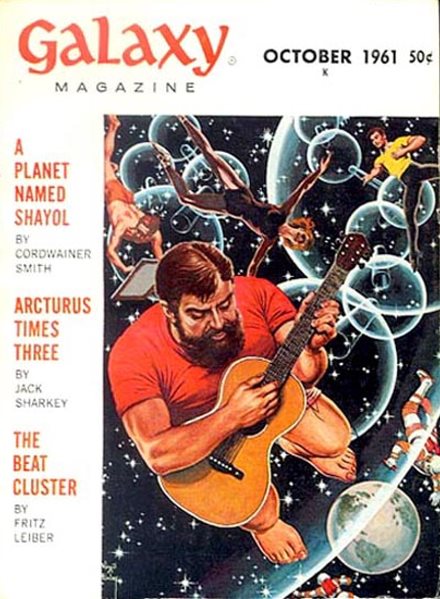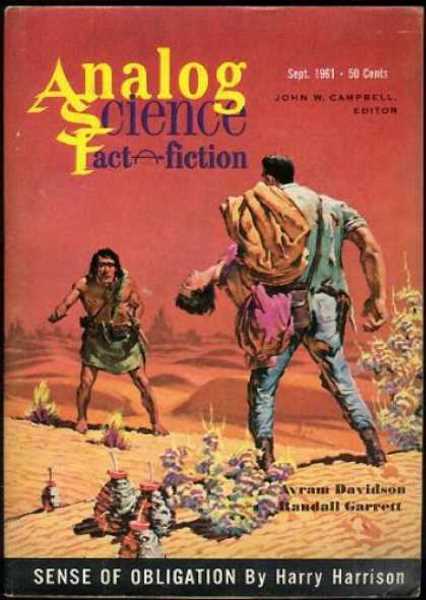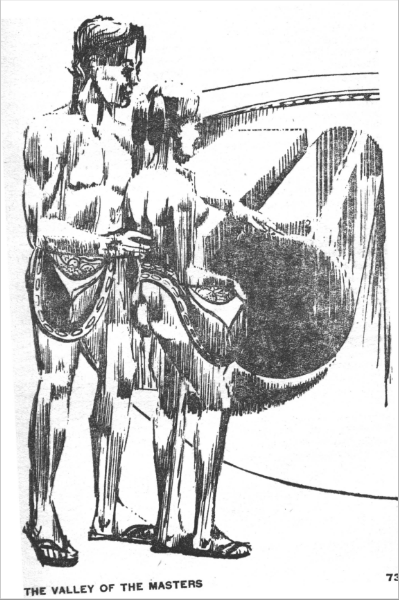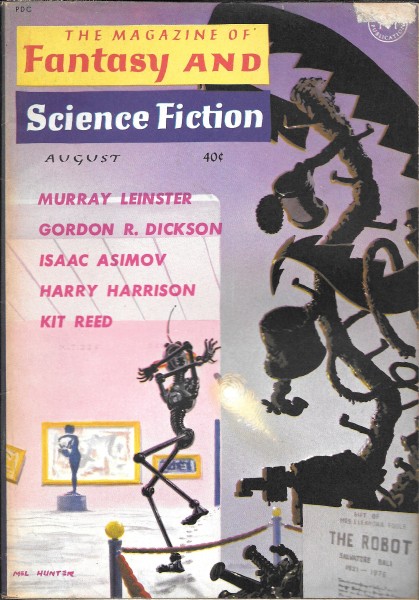
by Victoria Silverwolf
The power of music to portray emotions and to evoke images in the listener’s mind seems to be universal to all cultures. It seems inevitable that it will be used in the future to convey feelings and experiences as yet unknown. As human beings explore the unimaginably vast silence of outer space, they will take music with them to fill the void.
Such is the theme of the novella which forms the anchor of this month’s issue of Fantastic. Before we indulge in this sonic feast, however, let’s whet our appetites with an offering from the creative genius of Fritz Leiber.

Cover art by Lloyd Birmingham (making his debut here) accurately portrays the bizarre event at the heart of Hatchery of Dreams. This tale of magic begins like a modern suspense story, as a man awakes one morning to discover that his much younger wife has disappeared, leaving behind a note that she has deserted him. In desperation, he enters her private “perfume distillery,” which he had previously left unexplored. He finds a gigantic egg on a heated, cloth-lined incubator. This is only the beginning of his strange adventures, as he tracks down one by one the three other young women who make up his wife’s “bridge club.” Each one seems to be suffering from some kind of illness. Even odder is the fact that each one seems unnaturally attached to a toy animal. Nothing is what it seems to be, of course, and many more revelations will be made during the hunt for his lost bride.
Making use of themes from the author’s classic 1943 novel Conjure Wife, this is a richly imaginative story. As one expects from Leiber, the “girls” he interviews during his search are alluring and mysterious creatures. Somehow the author is always able to bring these archetypical females to life, and his obvious genuine affection for women renders them fully realized characters. Four stars.

After this delightful aperitif, we turn to the main course for the evening. J. F. Bone’s novella Special Effect is set in the twenty-second century, when humanity has settled all parts of the Solar System. From civilized, bird-like Martian humanoids to utterly alien organisms inhabiting the moons of the outer planets, extraterrestrial life is found almost everywhere. The author offers the reader a guided tour of this setting as he tells his tale.
A great composer has died just after completing his masterpiece, the “Nine Worlds Symphony.” It is as yet unperformed, as the score requires recordings of authentic sounds from throughout the Solar System, from the crash of falling ice towers on Pluto to the bubbling of lava on the border between Mercury’s hot and cold sides. Many of these sounds involve alien life forms: the ringing of a Martian temple bell, the roar of dangerous Venusian animals, and more. A producer who owns the rights to the symphony, and thus stands to make a large profit when it is performed, hires the narrator, a veteran of space travel, to transport his workers and equipment on an odyssey among the planets to collect the sounds.
Recording each sound offers a new challenge, often deadly. Scenes of violent adventure alternate with scenes of encounters with enigmatic extraterrestrial lifeforms. Although the portrait of the Solar System is a little old-fashioned, with its inhabited Mars and its swampy Venus, and the story is inherently episodic, the descriptions are vivid and always interesting. Three stars.

If the reader is not yet sated, there are three short tales for dessert. To Heaven Standing Up by Paul Ernst is this issue’s reprint. Originally published in the pages of Argosy in April of 1941, this is an account of a man who attempts to build a flying machine operated by muscle power. The materials and methods he uses seem plausible; so much so, in fact, that this story might not even be considered speculative fiction by many readers. In any case, it’s a well-written character study. (In his introduction, science fiction historian Sam Moskowitz reveals that Argosy was a stepping stone between the pulps and the slicks, which explains the story’s mainstream style.) Three stars.

The Living End by Henry Slesar offers an intriguing premise. A meek fellow winds up with an old book of prophecies, much like those of Nostradamus. The predictions are uncannily accurate, foretelling events such as the Declaration of Independence to the very day. When he discovers that the last prophecy in the book announces that the world will come to an end in ten days, he throws away his conformist lifestyle and goes on a wild spree. Of course, there’s a twist ending. Unfortunately, I found it both illogical and anticlimactic, so I can only award the promising story two stars.
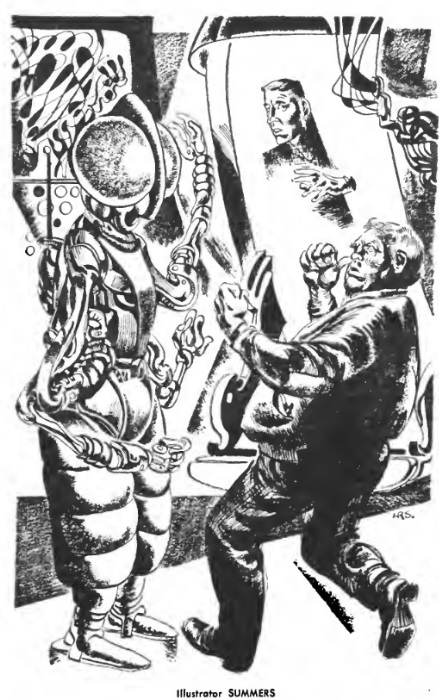
Rog Phillips offers an entry in his “Lefty Baker” series in . . . But Who Knows Huer, or Huen? This is a madcap farce about very human aliens who enlist the narrator’s aid in combating another group of very human aliens who intend to wipe out all other forms of life. It’s the kind of silly comedy which is not my cup of tea. Add to that the fact that the story seems to imply that mental illness is funny, and I have to give it one star. I’ve haven’t read any of the other stories about Lefty Baker, and I won’t seek them out.
Although the quality of the issue slowly decreases from front to back, overall it earns a rating of just slightly over two and one-half stars. Without the final story, it would have earned a solid three stars. Fantastic continues to be a promising, greatly improved magazine, well worth reading. Of interest is the fact that the letter column contains more than one complaint about the stories of David R. Bunch, one of the innovative authors brought to the magazine by editor Cele Goldsmith. Since I am highly impressed by the daring and controversial work of Bunch, I look forward to discovering what other new talents she will bring to a publication that has not always lived up to its name.













